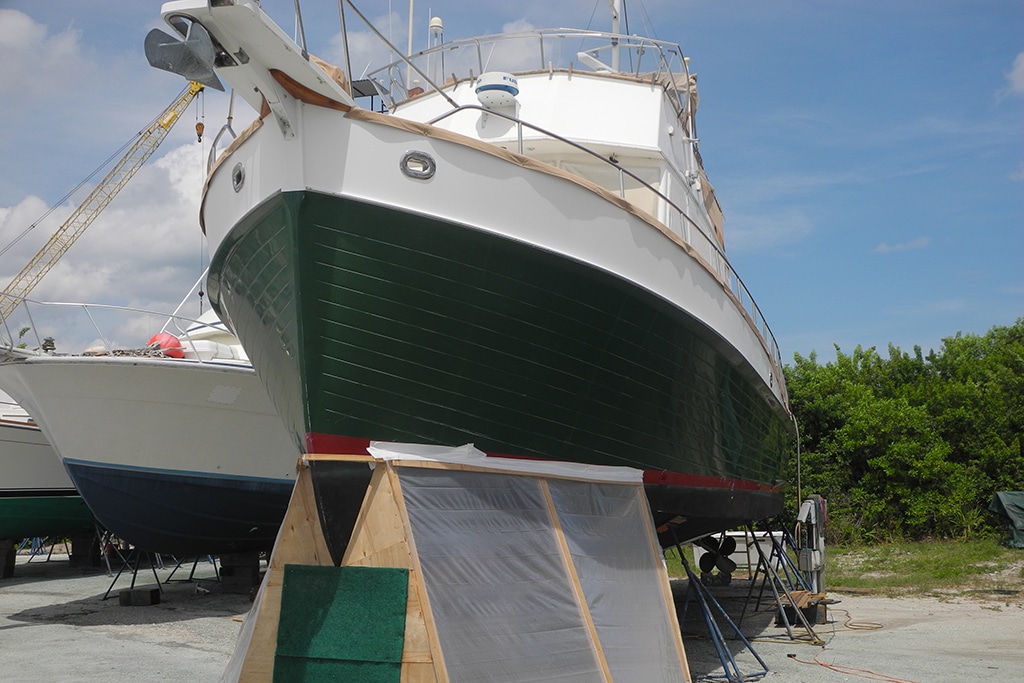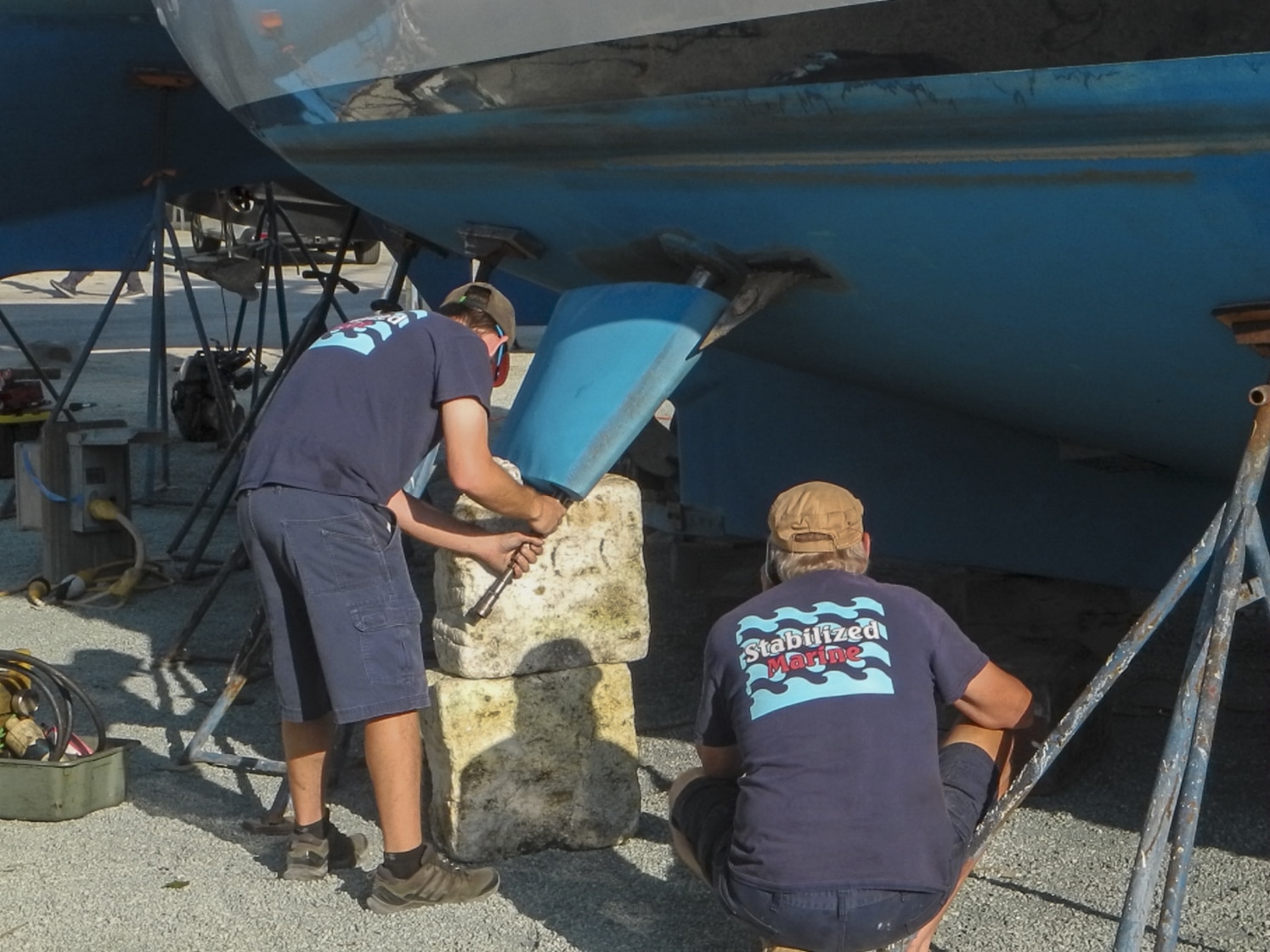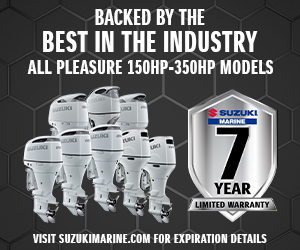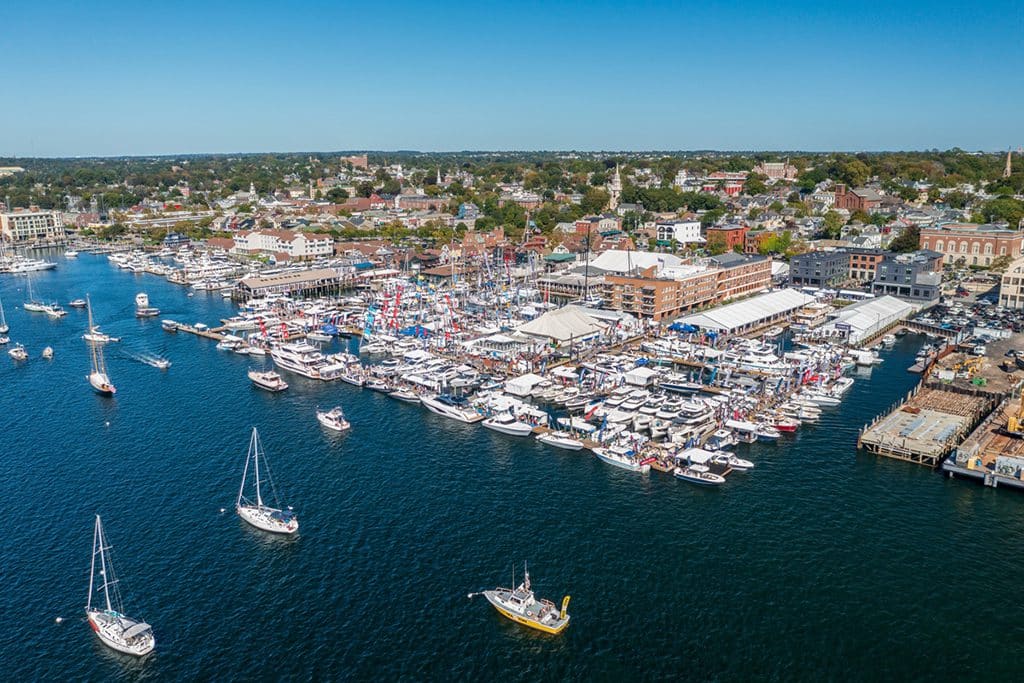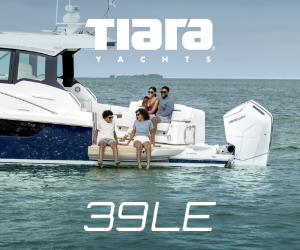New Boat for Less
Find joy in buying a used boat by keeping your goals in focus.
Daydreaming of a new boat when “new” isn’t in your budget? Perhaps consider purchasing a used boat to get on the water sooner. Either way, new or used, you have some prep work to do before beginning your search.
Buying a used boat can be a task or it can be an adventure. Start by writing down your goals and what you expect the boat to do for you. Determine your speed requirements for fishing or cruising—or maybe both. If anchoring is in your plans, then also think about your dinghy options. Imagine if you will need guest staterooms and if you will prepare meals in the galley up or down. Most important for the helmsman, are you feeling the breeze in your hair as you navigate from the flybridge or are you enjoying the enclosed comfort of a lower helm?
Now you can begin your search: twin or single engine, bow or stern thruster, stabilizers, navigation equipment? There is a lot to consider before traveling to the boat that meets your goals and budget.
History Lessons Help
A wise, old salt once said, “If you never ask, then you never get told YES!” Ask for service records, maintenance logbooks, and invoices for major work already done. Learning about the history of a used boat before you fall in love with it can help in your decision-making later.
Ask for the last survey. If the boat was purchased recently, you may be fortunate to read the Purchase Survey. If the seller has owned the boat for a while, it may be an Insurance Renewal Survey. The Purchase vs. Renewal surveys will likely offer different reporting strategies. Purchase surveys often are a deeper dive into what needs attention.
Be sure to read service hours on the engines and generator. Look for oil changes and fluid analysis. This information can set a benchmark for your survey. Check the “then and now” results.
Not All Engines Are Created Equal
Learn more about the engine and its expected service life in that type of boat. External heat exchangers for cooling the engine must be inspected and cleaned at regular intervals. Consider a water-cooled radiator for the engine coolant, transmission, turbo air after cooler, oil and fuel coolers, and the hot exhaust system.
These are all major service items that can be discussed with the seller or broker, but you can also look at the engines to see telltale clues if work had been done. The paint may be different colors or shades as an indication something has been repaired. Ask these questions before traveling to the boat.
Onboard Space
When visiting the boat, consider first impressions, but dig deeper. Space is important for you and your guests, and it includes personal belongings, water toys, fishing gear, and provisions for your expected cruise duration.
Space is also essential belowdecks if you plan to do any of the service work such as change the oil or diesel fuel filters. A good deal on a used boat isn’t a deal if you are constantly paying service techs to keep her running. Take a look around. Imagine replacing the rubber impeller on the raw water-cooling pump or changing a diesel fuel filter. Many of these items may be neglected if you can’t easily access the equipment.
Sniff Test
When you first walk on board, check for any lingering odors. These can emanate from soft goods, such as carpet, curtains, or cushion fabric. Those odors may be addressed with a good cleaning, but other sources might require more than a scrubbing to eliminate the unwelcome scent.
Often, a used boat may need some or all of the hoses changed too. Check the engine hoses as well as the hoses on the sewage black water system. Rub your hands across the hose to see if it passes the sniff test. Decide if you can change the hoses yourself or calculate the cost to hire a tech to complete the labor-intensive job.
Add-ons Add Up
If the boat meets your basic goals, then the role of subcontractor evolves. That’s YOU. How will you proceed with updating the accessories aboard the boat? Is there enough space to make those installations, and do you have the budget to make it all worthwhile?
Installing a bow or stern thruster takes time in the boatyard. If you want to add active fin stabilizers, it could be longer. You will have to drill holes in the hull midship to install the power head and fins. Then, what power source do you prefer: hydraulic oil, pneumatic air, or electric? If you select the gyrostabilizer, you must locate space belowdecks to install the spherical unit and a power source—Direct Current (DC) battery power or Alternating Current (AC) generator power.
Many new and used boat owners begin to understand that you can spend a lot less money waiting in a marina for good weather if big-ticket items like stabilizers aren’t in the budget. But if fishing is the goal, then maybe stabilizers are something to carve into your total reserve when considering the initial purchase price.
Hull and Engine Survey
Soft spots in the deck or swim platform can require many labor hours to repair. So, be discriminating when you walk around on your initial boarding and listen to your hull surveyor.
Good maintenance records can help the engine surveyor determine the health and expected life of the propulsion engines and generator. Depending on the mechanic’s recommendations, think about rebuilding the fuel delivery system and heat exchangers. Then you will have the next best thing to a brand-new engine.
Other considerations may include an inverter, shaft seals, toilets, and improved air conditioning. And we haven’t discussed modern navigation with 3D multifunction displays and radars integrated to your tablet or cell phone, auto routing, AIS, cellular boosters, and satellite TV dome.
The list goes on, but maybe you can have a like-new boat much faster by outfitting it to your standards—and have a little more money in your pocket when you are ready to splash!
Captains Chris & Alyse Caldwell are USCG 100-ton Masters and cruising coaches who offer consulting and boat training online or onboard your boat anywhere. The Caldwells help build your cruising confidence with training videos and through two-day seminars filled with tips for the boater who loves learning. Contact chris@askcaptainchris.com for more information.


